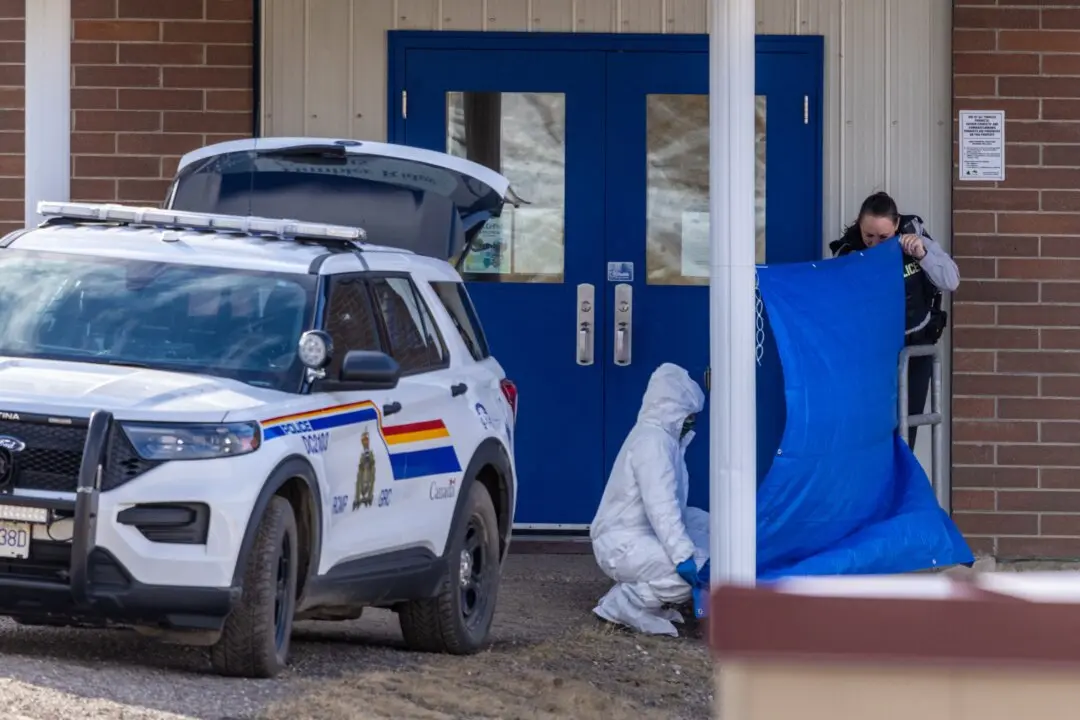Canada is relying too much on its military to fight wildfires, according to Canada’s emergency management minister.
Commenting Aug. 18 in a virtual press conference, Emergency Management Minister Eleanor Olszewski said that the nation is overusing members of the Canadian Armed Forces (CAF) to battle fires, leading to strained budgets and resources.
“This is not their primary responsibility, it’s not their primary duty, and we’ve been incredibly lucky to have the assistance of the armed forces for this wildfire season,” Olszewski said, which was first reported by Blacklock’s Reporter.
“We do need to look at things like resilience, like what else we do in terms of equipment, and how we better manage resources to lessen the load on the Armed Forces.”
Hundreds of troops have been sent on numerous deployments this year and in 2024 to fight wildfires. Last year’s deployment of CAF troops to aid wildfire response efforts included 230 troops sent to various parts of Alberta, deployment of Hercules aircraft and troops to evacuate residents from wildfires in Manitoba, and CAF support to evacuate residents in Newfoundland and Labrador.
So far this year, CAF members have been deployed to Quebec, Manitoba, and Ontario to help with wildfire response, as well as assisting in efforts to fight wildfires in Los Angeles in January.
According to Olszewski, the Carney government is focused on strengthening coordination and capacity between provinces and territories as part of a plan to better respond to wildfires and natural disasters across the country. The idea of Canada creating a new emergency agency similar to the United States’ Federal Emergency Management Agency (FEMA) was floated last year by former Emergency Management Minister Resilience Harjit Sajjan.
There were 707 wildfires in Canada as of Aug. 18, of which 68 are classed as out of control. Olszewski said Aug. 18 that there are no indications that wildfire season is slowing down.Making communities “more resilient to wildfire” and improving evacuation procedures are two ways that Olszewski mentioned could take the strain off the CAF. There hasn’t been an audit done of the cost of deploying military to fight wildfires, but the strain on budgets and personnel has been noted by Canadian politicians for years.
Last year, Alberta Deputy Premier Mike Ellis said that despite the strong support Canadians have for their Armed Forces, military troops “have very basic training when it comes to firefighting.”
“Certainly, it’s by no means at the same level as a structural firefighter, as an example,” he said.
“We called in the military as a last resort. They were wonderful, and they did what they needed to do. However, all communities need to be prepared with emergency management,” Ellis added.
The burden on CAF members was also noted earlier this month by Prime Minister Mark Carney, when he announced pay raises for all members of the military along with extra bonuses for those deployed to respond to natural disasters, such as wildfires.





